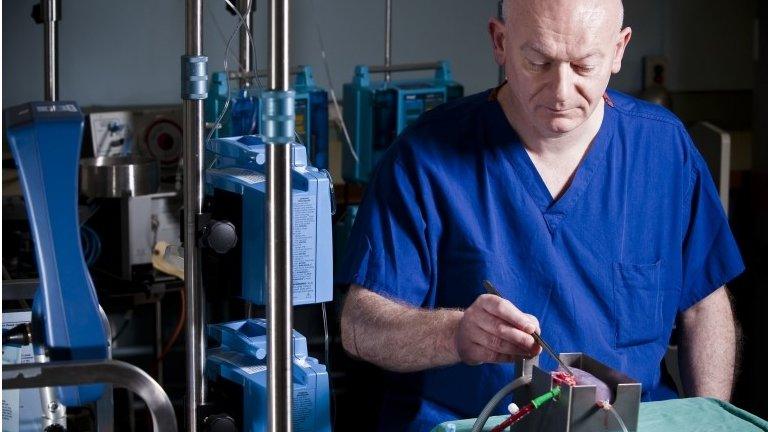Organ transplants: Black people wait up to six months longer, NHS figures show
- Published
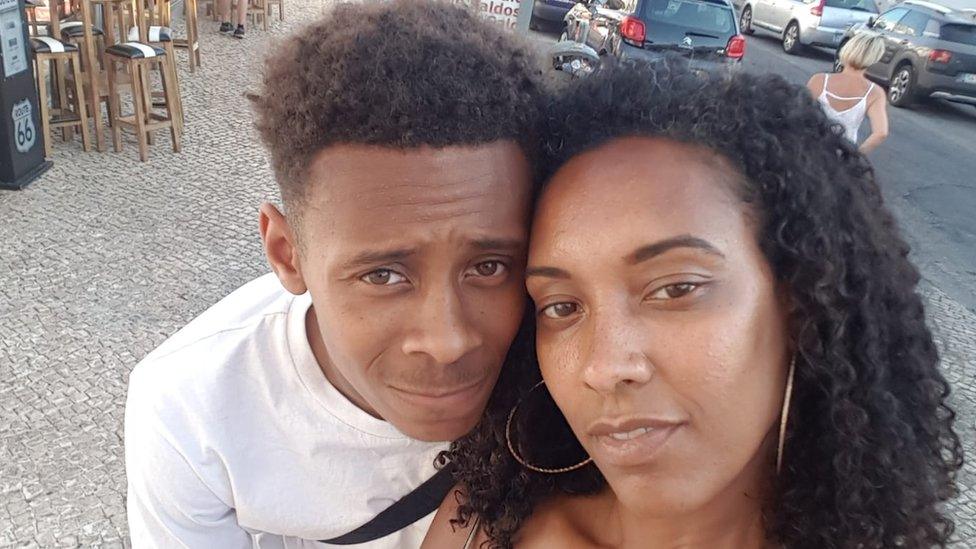
Sarah Hutchinson has been waiting for four years for a kidney, while her son Shae is also a transplant patient
Black patients wait six months longer on average for organ transplants than the general population, NHS data shows.
The best match comes from someone of the same ethnicity - but only 2% of donors in 2021/22 were black, while black people are 4% of the population.
Black families are also less likely to agree to organ donation than white families, the figures show.
The NHS says there's an "urgent need" for more people from ethnic minorities to donate.
The NHS Blood and Transplant report, seen by BBC Radio 1Xtra's If You Don't Know podcast ahead of its publication on Thursday, shows that while waiting times have improved for all ethnicities in the UK, black people wait on average 735 days for a kidney.
By comparison, the average waiting time for the general population is 550 days. For Asian people, it is 650 days and 488 days for white people.
Kidney patients make up the majority of people on waiting lists and face some of the longest waits, because transplants need to be matched by blood and tissue type, whereas other organs only need a blood type match. But there are similar disparities in waiting times for other organ transplants.
"Black people wait longer because there's less people coming forward to give their organs from their ethnic group," said Winnie Andango from NHS Blood and Transplant.
"During Covid, so many patients were suspended but those have been added back onto the list, and that means if we had less organs for this ethnic minority group we have even less right now."
Sarah Hutchinson - who has Alport Syndrome, a disease which affects the kidney function - has been waiting on the organ transplant list for four years.
She is on dialysis, which helps to do the work of her kidneys and remove toxins from her body, but she says it can be painful and tiring.
"It's an emotional rollercoaster. It's the tiredness, the fatigue. That, if anything, is what gets you down," she told the If You Don't Know podcast.
"I am struggling at the moment with my energy levels, and things you kind of take for granted I can't do anymore."
She says getting a kidney transplant would be "life-changing" and wants to encourage more people from the black community to donate their organs.
"I totally understand why not many people come forward. To help ourselves - and they say 'black lives matter'- we need to do more for our own community and organ donation is definitely one of them."
Listen to the latest If You Don't Know podcast to hear more about black organ donors.
Her son, 22-year-old footballer Shae, has the same condition and found it was affecting his career as a striker for Norwich City FC's under-23s.
"I couldn't really manage to play a full 90 minutes," he said. "My muscles were getting tired quicker - even after an injury it took me longer to recover than it should have."
His health improved when he had a transplant - initially from his dad in 2018, and then from a stranger in 2020 when the first transplant stopped working.
"After that I felt brilliant in myself, I didn't feel tired as much. I'm very grateful to the person who stepped forward," he added.
It was thanks to his uncle Simon that Shae was able to get his second transplant.
Simon donated his kidney as part of a sharing scheme, which meant his nephew got a kidney that was a better match - and his organ went to someone else.
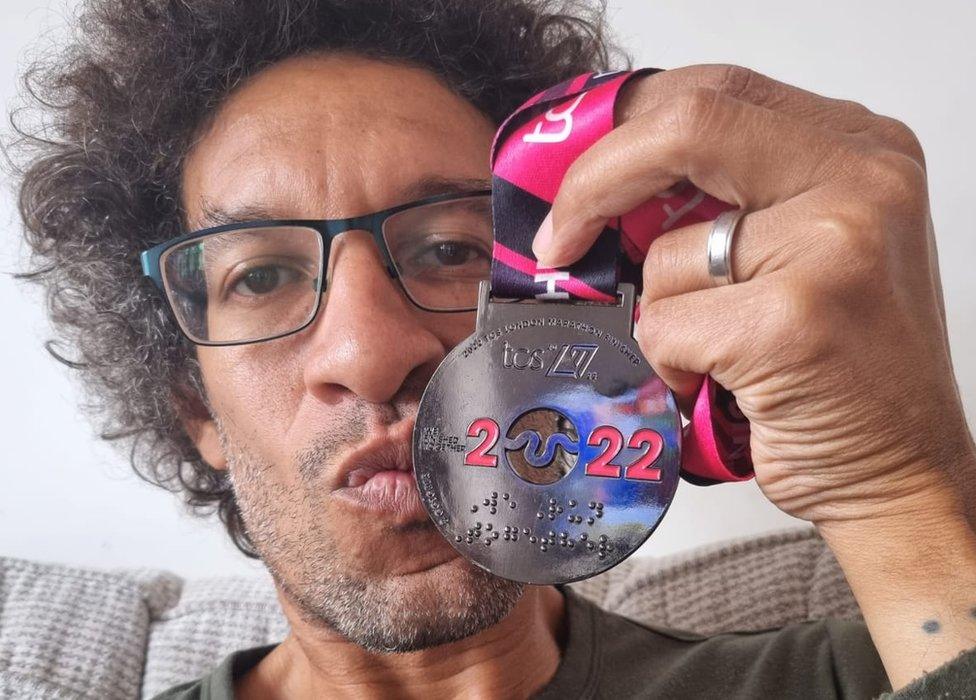
Simon ran the London Marathon after donating a kidney
He says living with one kidney hasn't impacted his life and wants to encourage more people to consider donating while they're alive.
"It's not changed me whatsoever," Simon said. "I actually ran the London Marathon to raise awareness for people to show it's OK to donate - it's not going to change your life."
The law around organ donation in England changed in 2020 to an opt-out system, meaning people are presumed to have consented unless they record a decision not to donate.
Scotland adopted the opt-out system in 2021, while Wales has taken this approach since 2015. In Northern Ireland, the law was changed last year.
But the number of UK donors last year was still lower than before the change in the law, as transplant services recover from the pandemic.
Despite the introduction of the opt-out approach, the families of people who have died are still involved in the decision before an organ donation goes ahead.
The NHS report found one of the reasons black families do not consent is because people were unsure what their loved ones would have wanted.
"Me being from a black family from Africa, death and dying are just not just normal things we discuss at dinner," said Ms Andango.
"So when it comes to something like this, it can feel like a very big decision and it becomes difficult because you've never discussed it really.
"The important thing is that people need to start having those conversations."
The government says it will be announcing extra measures to make the best use of organs "so we are saving as many lives as possible".
Health Minister Neil O'Brien said: "We need more people, especially those from black and Asian heritage, to register their organ donation decision and share it with their family so loved ones can follow their wishes."

Listen to the latest If You Don't Know podcast on BBC Sounds to hear more about black organ donors.
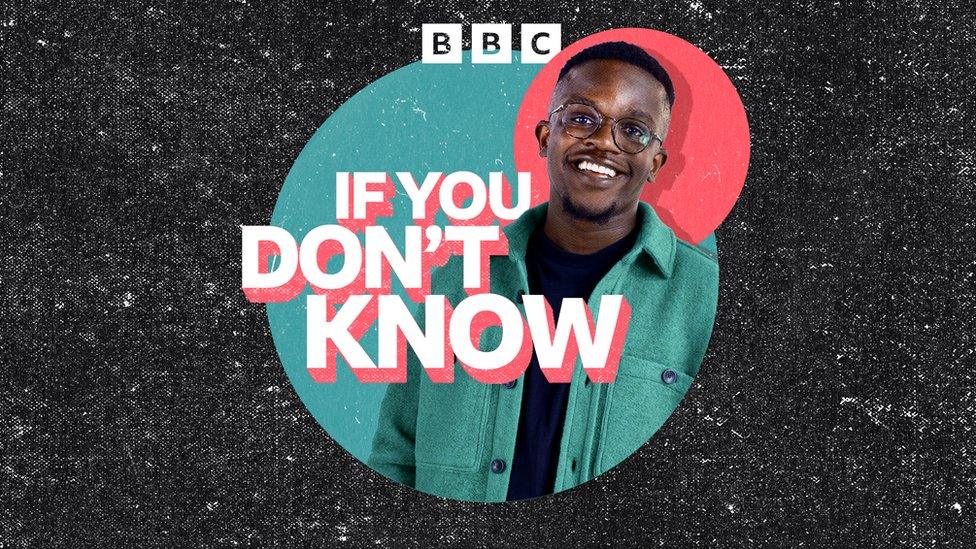
Related topics
- Published30 July 2022
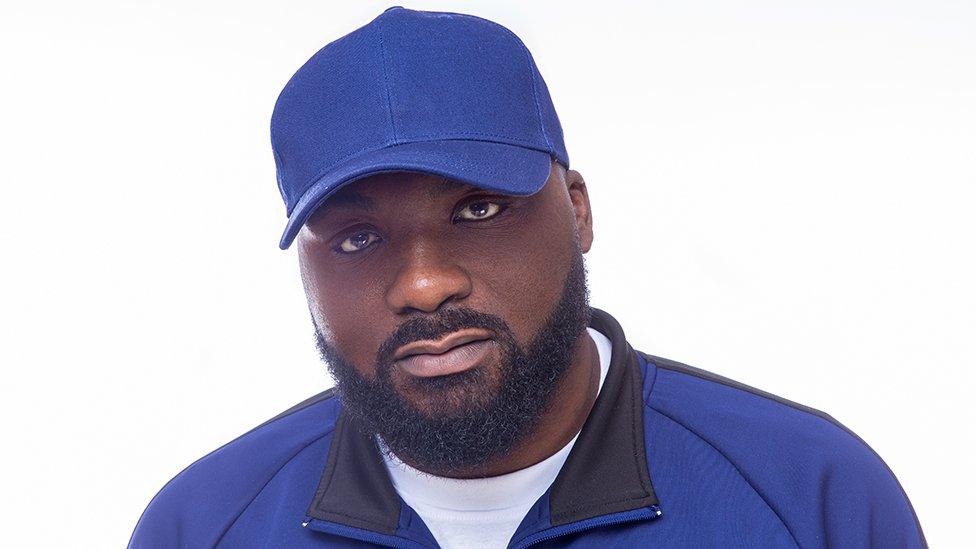
- Published3 July 2020
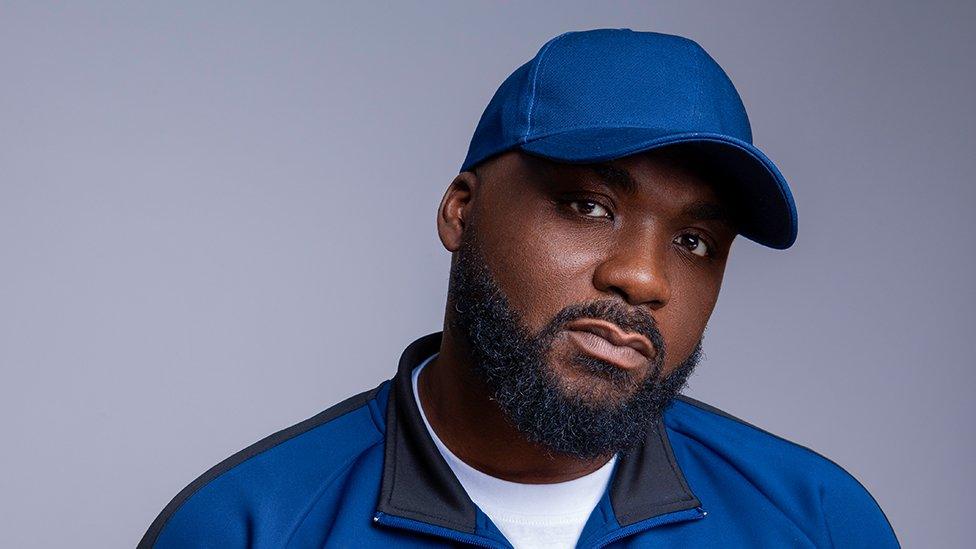
- Published20 May 2021

- Published7 December 2022
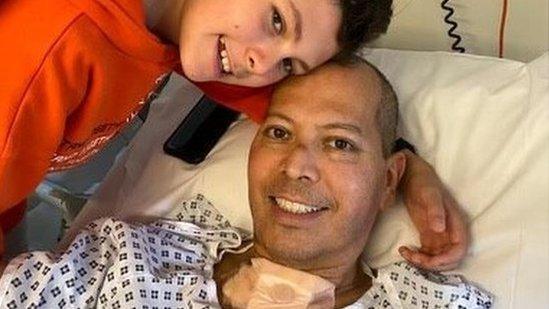
- Published15 August 2022
